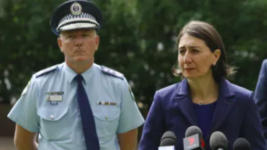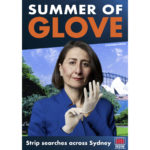Berejiklian’s Heavy-Handed Festival Laws Aren’t Reducing Serious Drug Incidents

It’s anyone’s guess as to how the 2020/21 NSW music festival season is going to pan out, as currently, due to the outbreak of COVID-19, there’s a statewide ban on such events. And with cases of the virus on the rise once again, there may be an extension of restrictions.
In early 2019, the Berejiklian government seemed hellbent on shutting down all music festivals, as a particularly drastic way of dealing with a rise in festival-related drug deaths and hospitalisations.
This saw five young Australians tragically lose their lives at events that festival season.
Right before the premier looked set to let loose on the entire industry, she pulled back, announcing that from March 2019, festivals deemed “high-risk” would be subject to a new music festival licence.
However, this scheme was voted down by the NSW upper house last September.
So, in response, the Coalition passed the Music Festivals Act 2019 (NSW) (the Act) two months later. This legislation provides a set of mandatory requirements for high-risk festivals to abide by, which include having to develop safety management plans.
The War on Festivals
The government had already released a list of festivals deemed high-risk back in February last year. These included Laneway, Defqon.1 and FOMO. Under the new festival laws, those events classed as extra risky warrant enhanced oversight from the Independent Liquor and Gaming Authority.
Section 5 of the Act outlines that a festival can be considered high-risk if a death has occurred in relation to the event within the last three years or on the advice of the NSW police commissioner, the health secretary or the music festival roundtable that was established via the legislation.
Event organisers are then required to produce a safety management plan. Section 6 of the Act sets out what a plan must contain, which includes information relating to the provision of medical assistance, chill out areas, evacuation points and signage.
A statutory band-aid
The music festival roundtable was required to conduct a review on the impact of the new high-risk festival regime. And the Music Festival Act 2019 operation review paper was tabled in NSW parliament on 30 June.
It sets out that by the time the regime came into play, 12 music festivals designated high-risk and required to submit safety management plans were set to take place. However, only nine of the festivals ended up going ahead, as three were cancelled due to the bushfires or the pandemic.
The roundtable then compared the data pertaining to each of these festivals for the 2018/19 and 2019/20 seasons. And it found that the number of deaths at these events was down from two to zero, while the number of transportations to hospitals – including those related to drugs – had dropped.
But, “all other incident types showed little change”, the report reads. “Importantly, the number of serious drug-related presentations requiring onsite critical care, intubation, urgent transport to hospital and/or ICU admission was consistent across seasons”.
Just say pill testing
While many stakeholders agreed that it was too early to make a proper evaluation, the early figures do seem to indicate that the new safety regime – which is being accompanied by saturation policing, drug dogs, strip searches and Berejiklian’s “just say no” approach to drugs – isn’t working.
So, it’s about time the government considered introducing pill testing, as well as the decriminalisation of the personal possession and use of all illicit substances.
This would lead to a more open and transparent situation at festivals that would reduce the consumption of deadly drugs and increase the likelihood of those in trouble after having consumed toxic substances seeking medical assistance.







